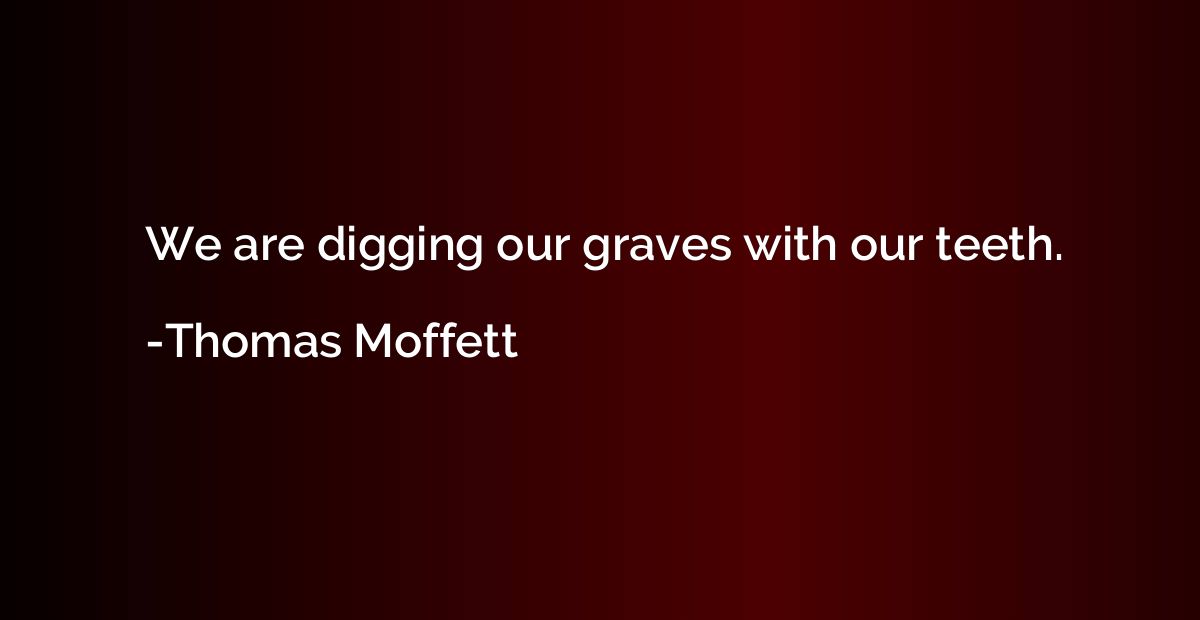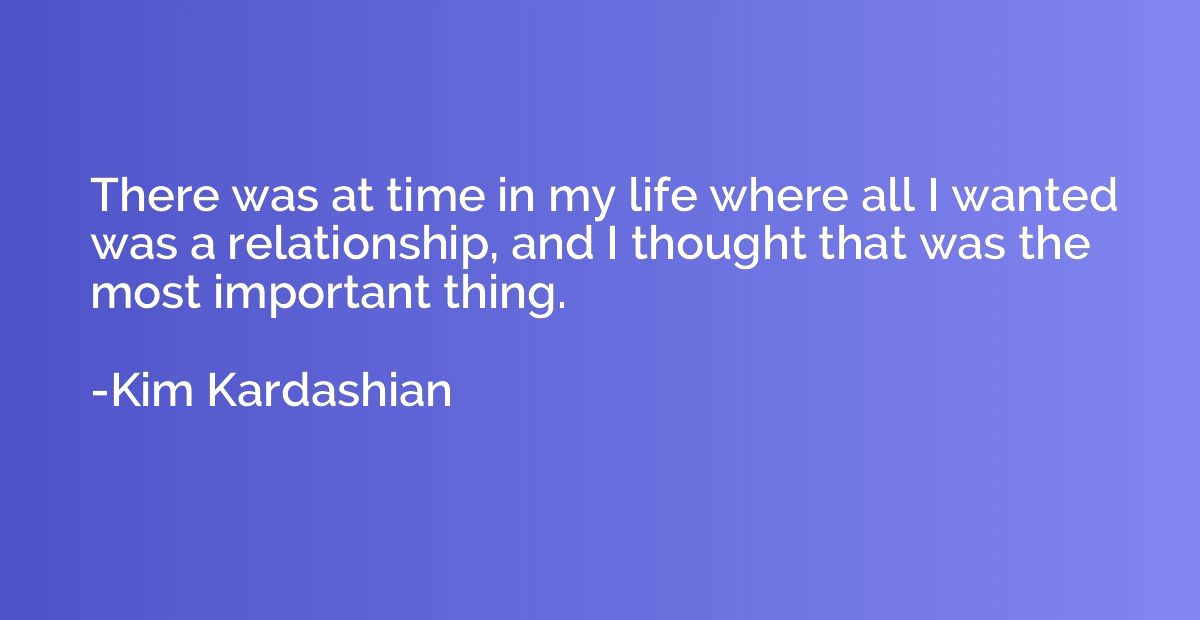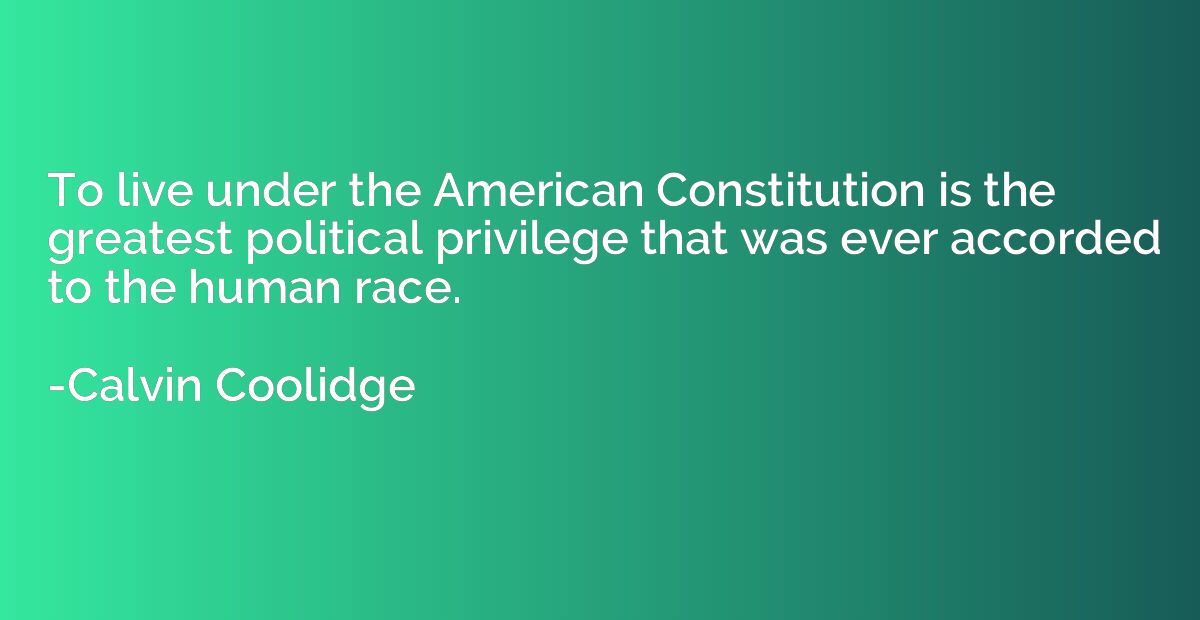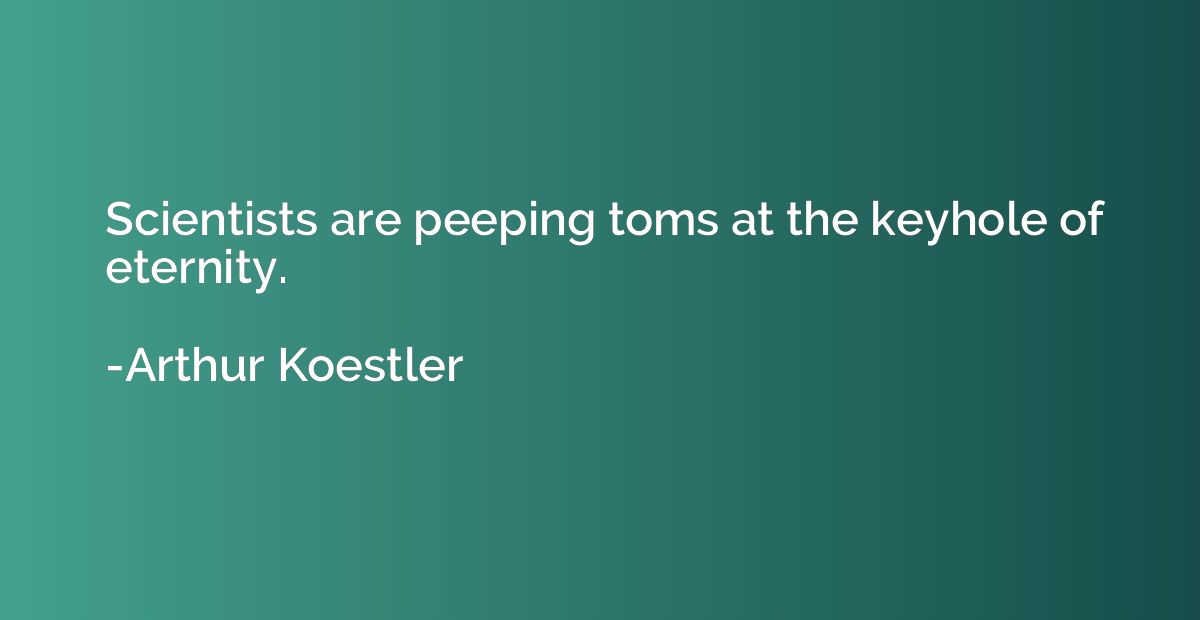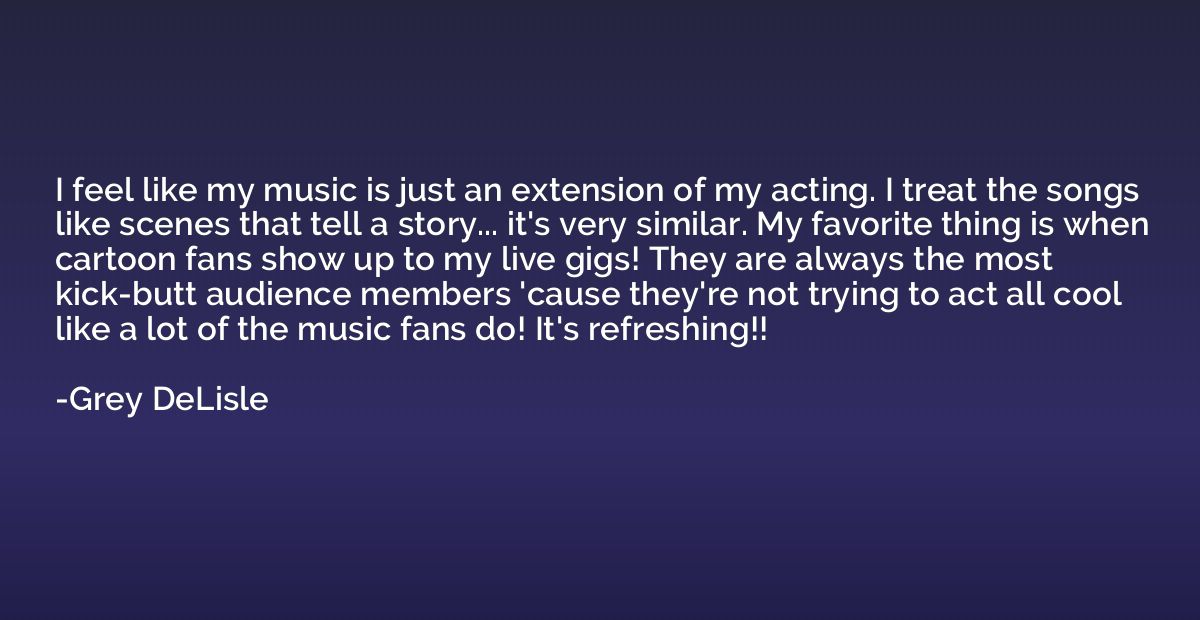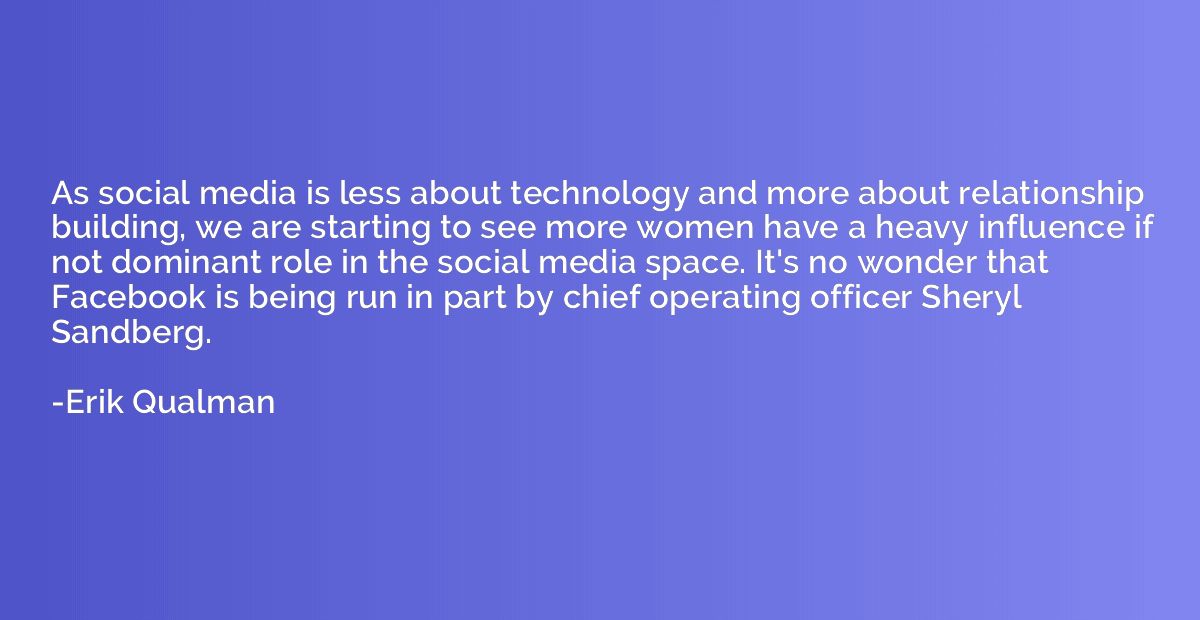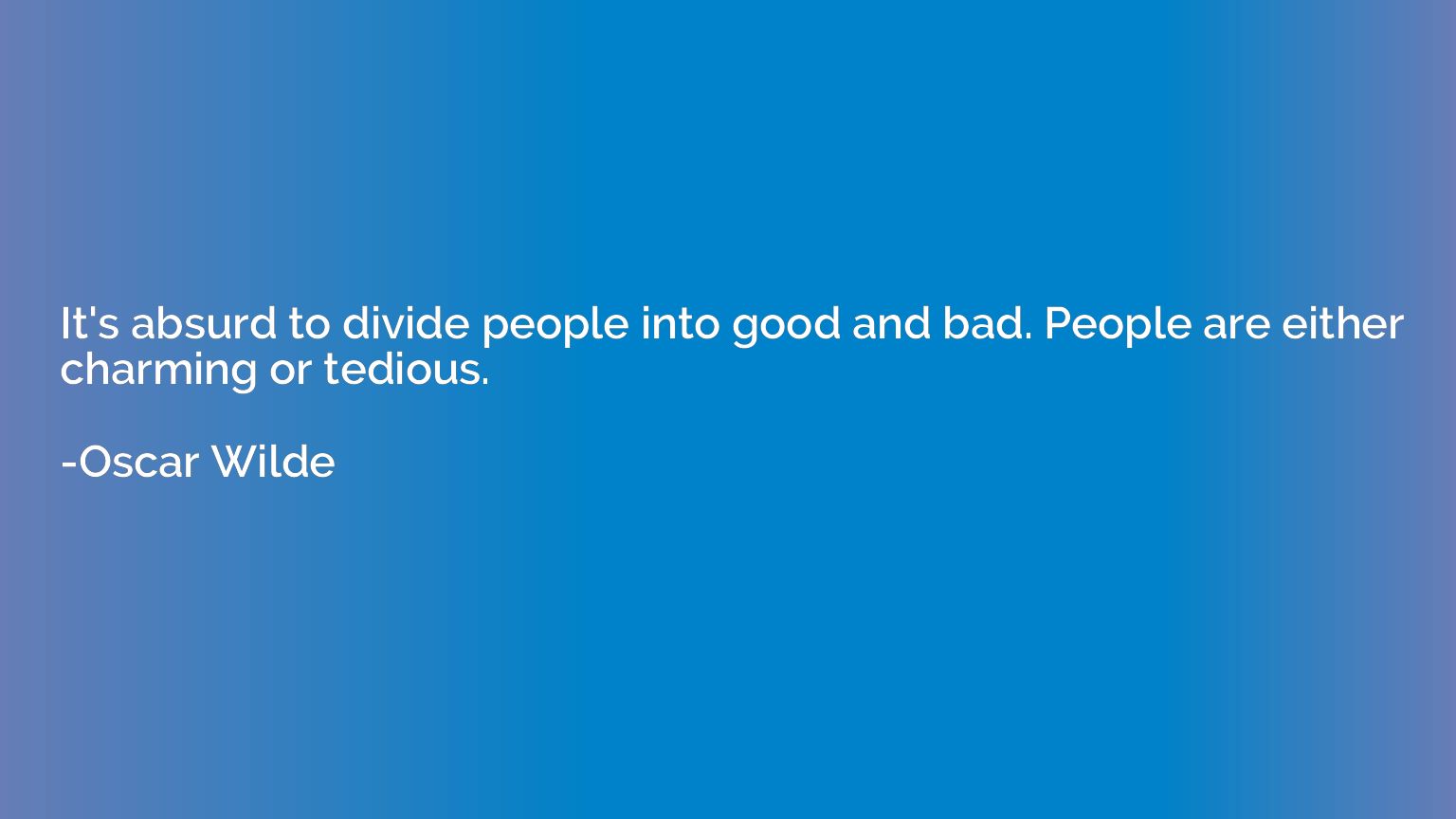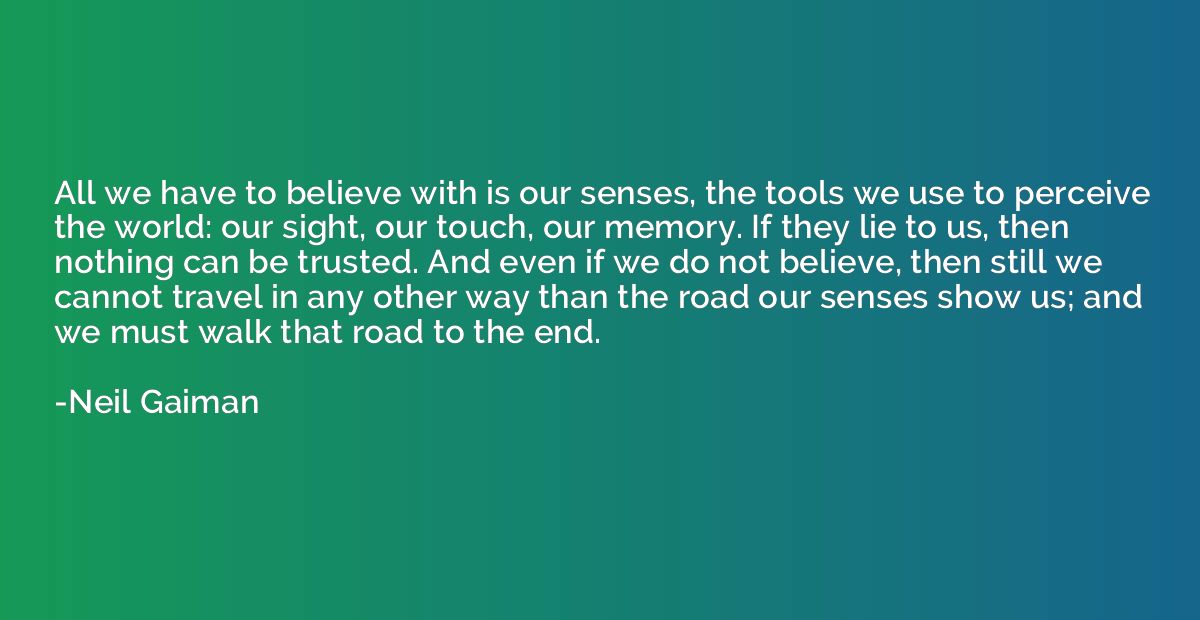Quote by C.S. Lewis
My argument against God was that the universe seemed so cruel and unjust. But how had I got this idea of just and unjust? A man does not call a line crooked unless he has some idea of a straight line. What was I comparing this universe with when I called it unjust? If the whole show was bad and senseless from A to Z, so to speak, why did I, who was supposed to be part of the show, find myself in such a violent reaction against it?... Of course I could have given up my idea of justice by saying it was nothing but a private idea of my own. But if i did that, then my argument against God collapsed too--for the argument depended on saying the world was really unjust, not simply that it did not happen to please my fancies. Thus, in the very act of trying to prove that God did not exist - in other words, that the whole of reality was senseless - I found I was forced to assume that one part of reality - namely my idea of justice - was full of sense. If the whole universe has no meaning, we should never have found out that it has no meaning: just as, if there were no light in the universe and therefore no creatures with eyes, we should never have known it was dark. Dark would be without meaning.' ~C.S. Lewis
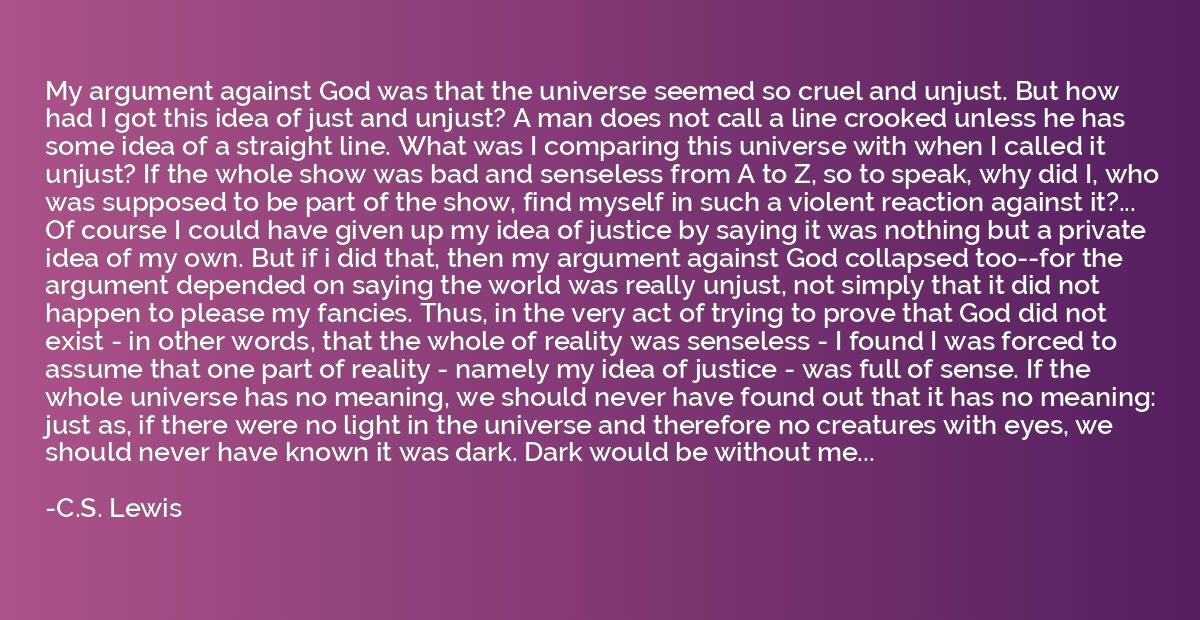
Summary
In this quote, C.S. Lewis reflects on his argument against the existence of God. He questions his own understanding of justice and injustice in the universe, asking what he is comparing it to in order to label it as unjust. Lewis realizes that his ability to perceive the world as unjust implies a standard of justice, a "straight line" to contrast the crooked. He ponders how he could argue against God's existence while still holding onto the concept of justice, which is embedded in his own being. Lewis highlights the paradox that the very act of questioning the meaning and purpose of the universe assumes the existence of some inherent meaning.
By C.S. Lewis



